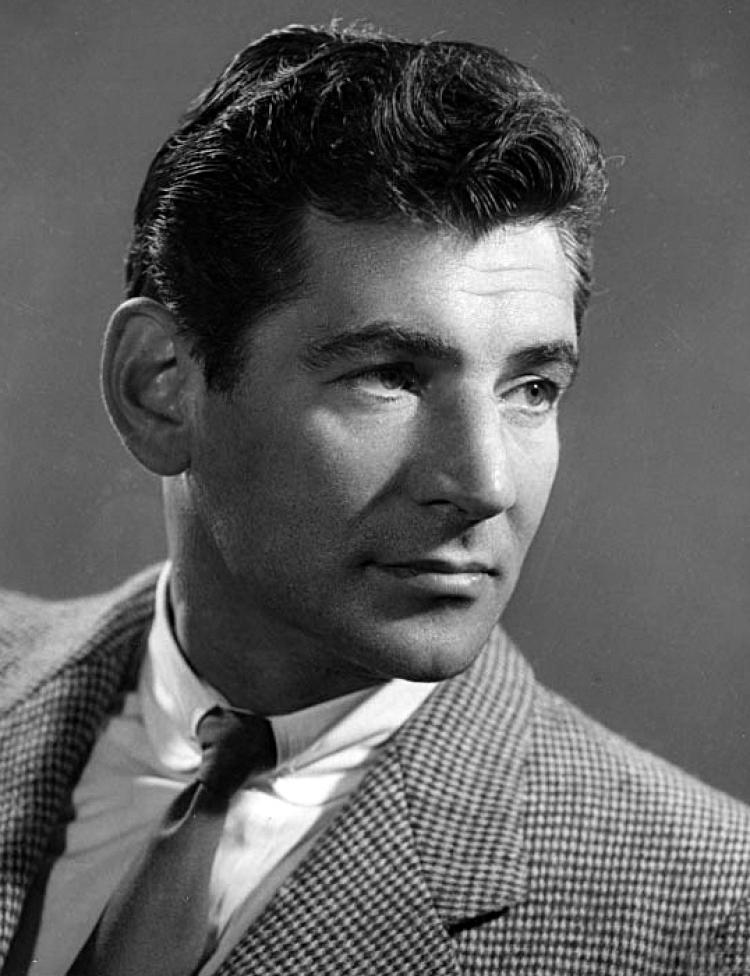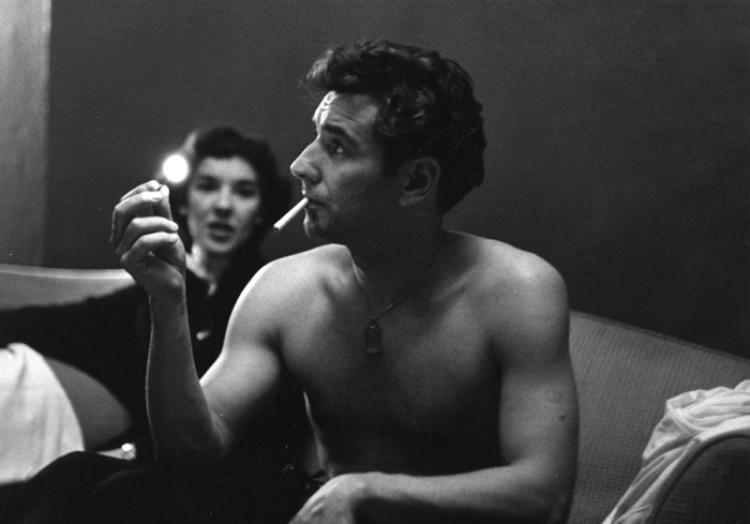Humanitarian
My Father's Idealism
by Jamie Bernstein

Photographer Unknown, Leonard_Bernstein_-_1950s, courtesy of the Leonard Bernstein Office.
My father, Leonard Bernstein, grew up in a world of stark political contrasts. From the Depression to Roosevelt and the New Deal, from Nazism to World War II and the dropping of the atom bomb on Hiroshima, young Bernstein witnessed a world full of evil that was occasionally tempered by powerful forces of good. In the mid-1960's, just as life and public justice in America seemed to be making some progress, Bernstein and his contemporaries found themselves swept up in the upheavals of three devastating assassinations: President John F. Kennedy in 1963, and then five years later, Rev. Martin Luther King and President Kennedy’s brother, Robert F. Kennedy. And then there was yet another long and wounding war, in Vietnam.
Through it all, my father clung hard to the belief that by creating beauty, and by sharing it with as many people as possible, artists had the power to tip the earthly balance in favor of brotherhood and peace. After all, he reasoned, if humans could create and appreciate musical harmony, then surely they were capable of replicating that very same harmony in the world they lived in.
Leonard Bernstein was not shy about sharing his political beliefs with the world. Nor was he afraid of the various epithets — liberal, Jew, antiwar, radical chic, commie-pinko-queer — which over the years stuck to him like burrs on his coattails. He spoke out and fought doggedly for the causes he believed in. He donated fees, wrote letters and campaign songs, even entire musical works, in order to communicate his fervent hope for a better world.

Bernstein in the Greenroom, courtesy of the Ruth Orkin Archive
Shortly after President Kennedy's assassination, my father said: "This will be our reply to violence: to make music more intensely, more beautifully, more devotedly than ever before." Since that time, there have been all too many occasions on which to cite that quotation again. Yet each time it is reprinted or uttered, that statement provides the same gleam of comfort and all-embracing optimism that my father conveyed to the world during his lifetime, through his every note and act.
Article courtesy of the Leonard Bernstein Office website.

